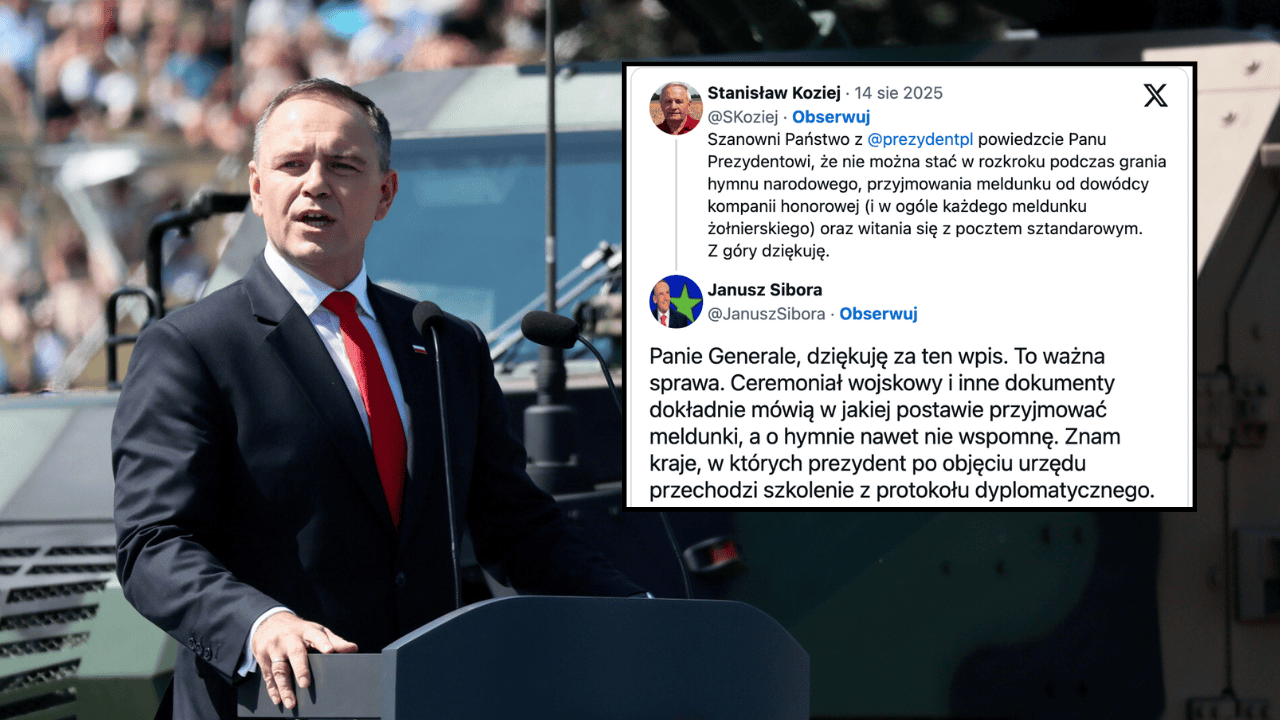Despite media speculation that any countries have not yet cancelled their contracts for American F-35 aircraft. Furthermore, any of the European NATO members have announced an increase in orders for the only 5th generation available in the West with combat capabilities that no another types of jets have. At the same time, there are many candidates for F-35 outside Europe, but not all of them have the chance that the United States will agree to sale them, for both military and political reasons.
Doubts about the failure of export opportunities F-35 in the future increased early this year, after President of the United States by Donald Trump, and they were the aftermath of the political tensions that emerged in the relations of the superpowers with any of the old, close allies. Among the reasons for the deterioration of common relations were, among others, his suggested claims to certain territories, including Danish Greenland. In this context, there has been controversy around the F-35 related to speculation about the alleged kill switch, or technology that would allegedly give Americans full control of their weaponry system. Thus, it could not be utilized against the US.
Despite these suspicions in early July, Denmark's defence minister Troels Lund Poulsen expressed interest in acquiring more F-35A fighters. The Danish, who received more than half of the 27 aircraft ordered, intend to buy at least 10 more. Belgium, which contracted 34 American fighters, besides decided to make the same move. In July, the Belgian authorities confirmed that another order would be submitted, this time for 11 F-35A.
This announcement provoked criticism from Érica Trappier, the head of the French company Dassault Aviation producing Rafale fighters. According to him, the Belgian approach is incomprehensible due to the fact that on the 1 hand they buy F-35 and on the another they express interest in the French-German-Spanish FCAS (Future Combat Air System) project, which assumes the creation of a European fighter of the future. Belgium wants to change its current observer position into a partner, which would require a fewer 100 million euros, but could supply economical prosperity. Meanwhile, Trappier warned against countries seeking benefits from participating in the programme, which would not later buy equipment produced in Europe. The defence minister Theo Francken responded to his criticism, who stated that the Belgians did not gotta “take instruction from arrogant industrialists”.
The F-35A was besides purchased by 2 Belgian neighbors – the Netherlands and Germany. The Dutch, who had already received most of the 52 contracted fighters, decided to buy six more in September 2024. Due to the request to participate in NATO atomic deterrence, the Germans ordered 35 F-35A. In fresh weeks, information has appeared in the media about the planned extension of the order by another 15 aircraft, but they have not been officially confirmed.
Romania is another European country that intends to grow its F-35 fleet in the future. Due to the advanced costs the Romanians have ordered 32 aircraft for the time being, but yet they want 48 of them. It is possible that the number of F-35A will increase Poland, which besides contracted 32 in 2020. In our case, we could even double the order. It may besides be in Greece, which has so far bought 20 F-35A, but wants at least 40 of them.
Further orders for F-35 are besides made by the UK and Italy, the largest European buyers. The British, who receive this year's last 48 F-35B machines from the first contract, want to get 27 F-35B and F-35A as part of the second contract. Purchasing 12 F-35A is simply a step to regain British aviation's ability to carry atomic weapons. These aircraft will besides reduce the training costs of pilots who are to be behind the F-35B controls. The second contract will not be the last, due to the fact that Britain plans to order as much as 138 F-35.
For this, the Italian order for another 15 F-35A and 10 F-35B has already been confirmed. Thus, the Italians contracted as many as 115 5th generation fighters, which are formed in their country. For the moment, there are no plans to place a fresh contract on F-35 Norway, which has received a contract of 52 F-35A, as well as Finland, which has decided to get them 64. The Czech Republic, which ordered 24 F-35A, will besides hold the Gripeny for any time.
As I mentioned, there is no turning back from aircraft from the US in Europe. At this point, Switzerland is the only country where serious doubts have arisen about the continuation of the F-35 programme. The problem is neither the US policy nor the method parameters of the aircraft, but the expanding cost of gaining. The Swiss government suggested that he was misled by the Americans, as in a contract signed in 2022 for the acquisition of 36 F-35A, an amount of 6 billion Swiss francs would allegedly constitute a "fixed price". So much money the Swiss agreed to acquisition fresh fighters in the referendum held in 2020, as the political strategy there requires specified a form of acceptance for specified large state spending.
Meanwhile, on June 25, defence Minister Martin Pfister admitted that the acquisition of the F-35 would be more expensive. Estimates of cost increases scope from 650 million to 1.3 billion Swiss francs. For this reason, any political groups suggested a fresh referendum. However, it is not known whether the Swiss government will hazard confronting president Trump's administration, which for cancelling the F-35 contract can apply various economical repercussions.
It is possible that the number of European users of the F-35 will grow by 3 more countries. 1 of them is Portugal. A fewer months ago, it was reported that the country had resigned from F-35, which, to put it mildly, was a large misunderstanding. Why? Portugal could not abandon these aircraft due to the fact that it had not yet chosen them. Even though Air Force Chief of Staff Gen. João Cartaxo Alves considers the F-35A to be the best successor presently utilized F-16AM/BM, this has not been made any decisions. Additionally, at the beginning of this year, erstwhile there were large tensions in American-European relations, the defence minister Nuno Melo expressed doubts about this choice. However, as the moods calmed, case F-35 for Portugal returned. In June, the maker of these Lockheed Martin aircraft signed an agreement with the AED Cluster Portugal industrial group to research the anticipation of the country's participation in the F-35 programme if Lisbon had chosen it. The exchange of sixteen is planned after 2030.
Another country that takes into account the acquisition of the F-35A is Austria, which is looking for a successor presently utilized in its aviation 15 Eurofighters. The final decision will most likely be like in Portugal around 2030.
Spain is besides a possible customer. respective years ago, reports reported that she would like to get 25 F-35A and F-35B. However, specified a transaction could provoke interior political conflict as the country participates in the Eurofighter programme and these fighters are produced there. Thus, any fresh order for these aircraft means maintaining jobs. Furthermore, Spain is besides a associate in FCAS, so the choice of American machines could origin discontent in France. However, Madrid may have no choice if, after being discharged from service around 2030, the AV-8B will inactive want to have on-board jets. The only available successor is and will be F-35B in 5 years' time, as the maritime version of the FCAS – if this program survives, which is not certain in the face of disputes over the sharing of industrial benefits between partners – will not be available until around 2040.
In Canada, which yet wanted to get 88 F-35A fighters, the future of the program is unclear for political and financial reasons. In January 2023, her government announced it would allocate 19 billion Canadian dollars to this purchase, but during the tendering process costs increased to 27.7 billion. However, until now Canada has only committed financially to acquisition 16 aircraft.
Additionally, after Donald Trump took over the presidency, Canadian-American relations deteriorated rapidly. In his statements, politicians questioned Canada's sovereignty, claiming that it should become the 51st U.S. state. There was besides economical force on his part – advanced duties on Canadian goods. In the face of these unfriendly actions, Canadian Prime Minister Mark Carney ordered a mid-March review of F-35 purchases, whose results are to be known in September.
Despite the resulting uncertainty, the Canadian Defence Ministry is preparing an airport infrastructure for F-35. In July, it was reported that he intended to initially allocate $500 million to fresh hangars at 2 airports, in Cold Lake, Alberta state and in Bagotville, Quebec Province. This may propose that Ottawa will buy American fighters, but possibly not as much as 88. Canadians may choose to order a second kind of combat aircraft in Europe. It is possible due to the fact that Prime Minister Carney said at the June NATO summit in the Netherlands that he spoke to European partners about the acquisition of fighters, most likely Gripens and Eurofighters.
Turkey is highly interesting. The country participated in the F-35 program for years and intended to get 100 of these fighters, but in 2019 during Donald Trump's first presidency he was removed from it. The reason was Turkey's acquisition of the S-400 air defence strategy in Russia. The Americans feared that through him the Kremlin could get information about the F-35's actions and capabilities.
Although Ankara is working on its own KAAN fighter, simultaneously Turkey's president Recep Tayyip Erdoğan is trying to convince Donald Trump to agree to return his country to the F-35 program. “We discussed this issue at a gathering with Mr Trump, and the discussions began at the method level. God willing, we will make progress," he said on June 26, returning from NATO summit in The Hague.
The obstacle standing on this road is the entry in the bill authorising national defence expenditure for the fiscal year 2020, which prohibits the transmission of the F-35 of Turkey, unless the Defence and State Secretaries have writtenly testified to the key congressional committees that Ankara "no longer owns" the S-400, and has undertaken not to take transportation of the strategy in the future, and has not acquired from Russia any another military equipment that could pose a threat to the American fighter. Moreover, Turkey was covered by the 2017 CATSA Act in December 2020, which imposed severe sanctions on US opponents specified as Iran, Russia and North Korea, and the countries cooperating with them, which means "no US export licences and permits" for the arms sector.
Another problem that may impede Turkey's return to the F-35 programme is the issue of its abroad policy, especially on Middle East. For Erdoğan's presidency, Turkish-Israeli relations have deteriorated. Turkey has supported, among others, Palestinian Hamas, and now a fresh field of conflict with Israel has become Syria, where both countries are trying to strengthen their influence. It is so highly likely that the Israelis will search to prevent the American people from making the F-35 available to the Turks, motivating this with concerns about their own safety and surely utilizing their friendly politicians in the U.S. Congress.
Despite the opinion that The future will belong to drones, political tensions, advanced acquisition prices and operating costs, F-35 sales are doing well. It's already been ordered by 19 countries. All the air force that was allowed to straight compare the F-35 with its European or American competitors yet chose this fighter. Taking into account the already placed orders and the declarations of their enlargement, the European air force alone will be around 600 F-35 in 10 years.
If there's a problem with selling Lockheed Martin, it's due to the fact that little countries in the planet than they'd like to buy an F-35. The United States does not sale them to anyone who wants to. A possible buyer must meet many key requirements, specified as the deficiency of any Chinese or Russian equipment that the Americans believe could compromise the safety of the 5th generation's secret data. Not only weapons, but even a civilian 5G network are dangerous. With the request to defend Israel's qualitative advantage and fear of leaking classified information, the Americans refused to sale F-35 to Saudi Arabia, Egypt and Qatar. For Thailand, Taiwan, Turkey and the United arabian Emirates there was a fear of spying and leaking delicate data to China or Russia.
This list shows that a very good relation with the United States is not adequate to get approval for the acquisition of the F-35, but it is essential to see the country as a trusted ally. Hence, NATO members, 13 of whom have already ordered U.S. 5th generation fighters, now have the best chance. The second group are countries recognized as major allies of the US outside NATO. Until now, only six countries with specified privileged relations with Washington, Australia, Israel, Japan, South Korea, Singapore and Switzerland have been made available to F-35.
The list of countries that could be sold to these advanced aircraft is not besides long. There is simply a group of NATO members on it who, for various reasons, have not yet expressed interest in obtaining the F-35. erstwhile it comes to countries of Africa, Latin America and Asia and Oceania, even with political acceptance hard to overcome the barrier, these advanced costs of buying and utilizing jets are mentioned.








![Nie spodobało się, iż nazwałam się imamką [Rozmowa z Seyran Ateş]](https://cdn.oko.press/cdn-cgi/image/trim=398;0;424;0,width=1200,quality=75/https://cdn.oko.press/2025/08/AFP__20170728__R207J__v1__HighRes__GermanyFranceReligionIslamMosque.jpg)

